You’ve heard it before: “Just say no.”
Often in the context of drugs[1], excessive drinking, or any other deleterious behaviors, this constant mantra has been obsessively pounded into our heads since we were young kids. Indeed, we’ve been told the best, most efficient way of avoiding problems is to remove the threat entirely. Simply by saying these two letters, N-O, we can ensure our wellbeing and save ourselves from a world of hurt. Seems pretty simple, right?
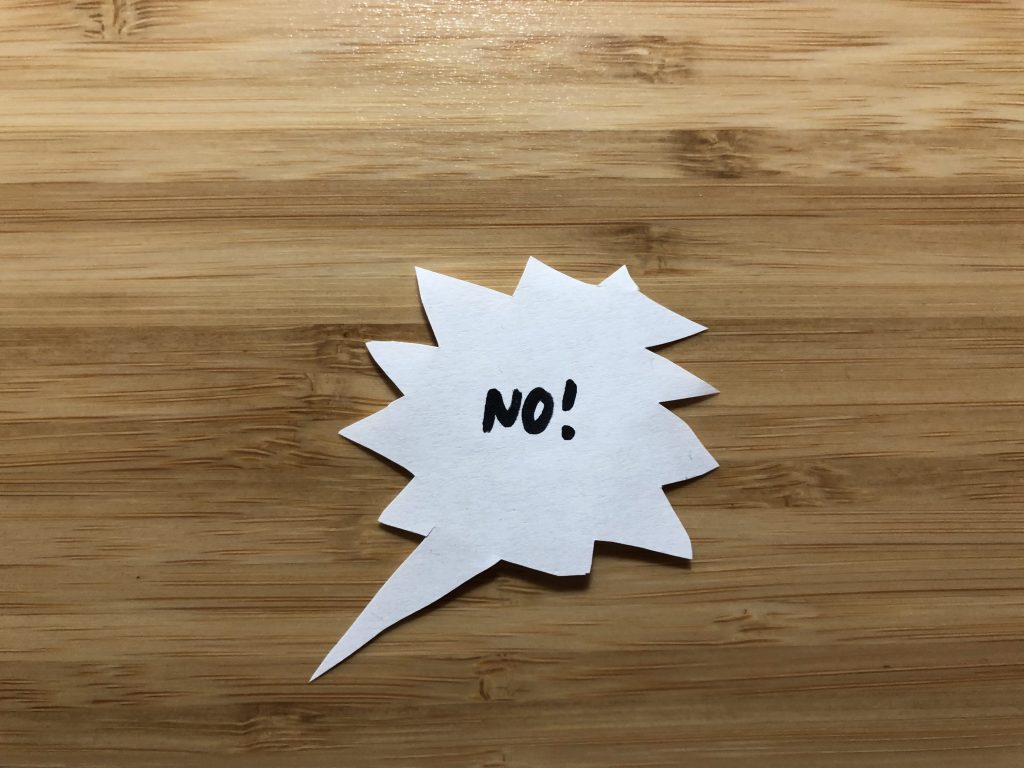
And yet, it’s also just as easy to say “yes.” “Yes” is the same number of syllables as “no.” “Yes” often invites more possibility and room for adventure than “no.” And, let’s not sidestep the fact that “yes” often protects us from feeling bad, looking like a jerk, or outing ourselves as dissenting naysayers. In essence, saying “yes” helps us more easily blend in with the rest of the pack, avoid disappointing the people around us, and circumvent potential threats or disruptions we might otherwise invite if we dare to say “no.”
“Yes” is conformity.
“Yes” is certainty.
“Yes” is safety.
“Yes,” is, in fact, often the easier option.
But the dangers of saying “yes” aren’t exclusive to traditionally harmful behaviors like excessive drinking and doing drugs. Not at all. In fact, the real threat actually looms larger and is much more pervasive than we may have initially imagined. From school, to work, to obligations with family and friends, we frequently find ourselves in situations where we feel pressured to say “yes” even when our hearts, minds, and better judgements scream for us to say “no.”
“Do you have time to help me with this project?”
I’m actually up to my eyeballs in work and am drowning with the projects I already have on my plate. I haven’t had a minute to catch my breath, and I haven’t been sleeping for the last two weeks.
“Yes.”
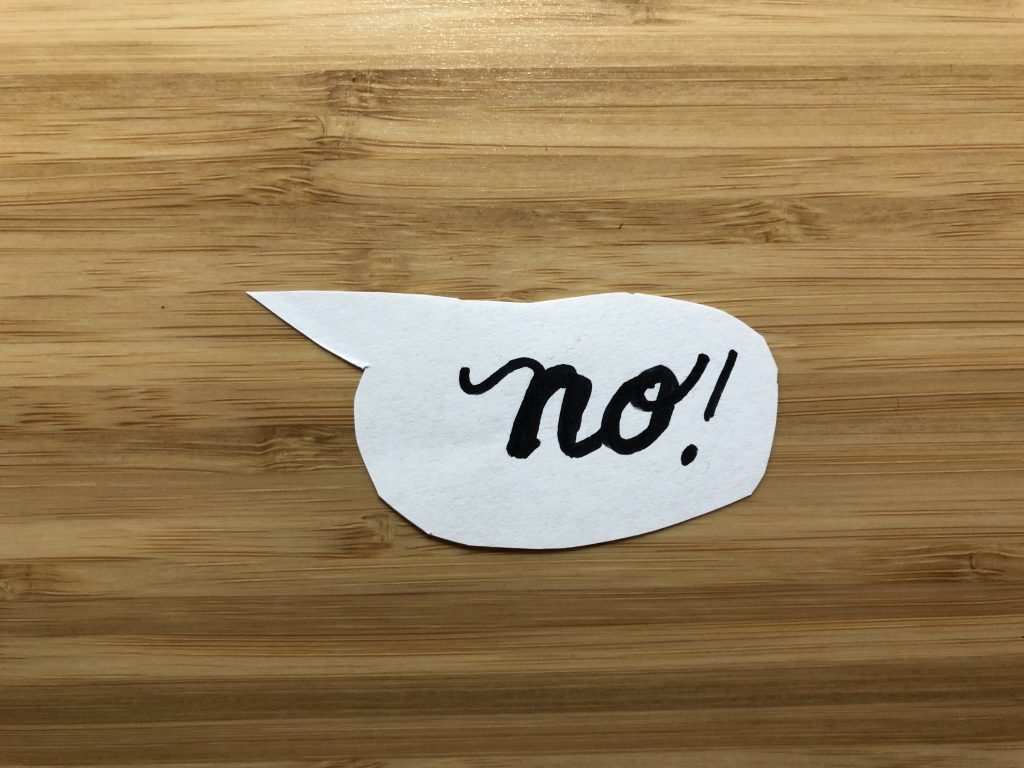
“Would you be willing to watch my dog while I’m out of town for the weekend? I’m really looking forward to this trip and would greatly appreciate the help.”
Ugh. I had plans to catch up with friends, hit up several museums, and generally be out of the house this weekend. I’m desperately craving some ‘me’ time, and watching your dog does not fit the bill. Also, I love dogs, but yours is super needy and kind of a terror.
“Yes.”
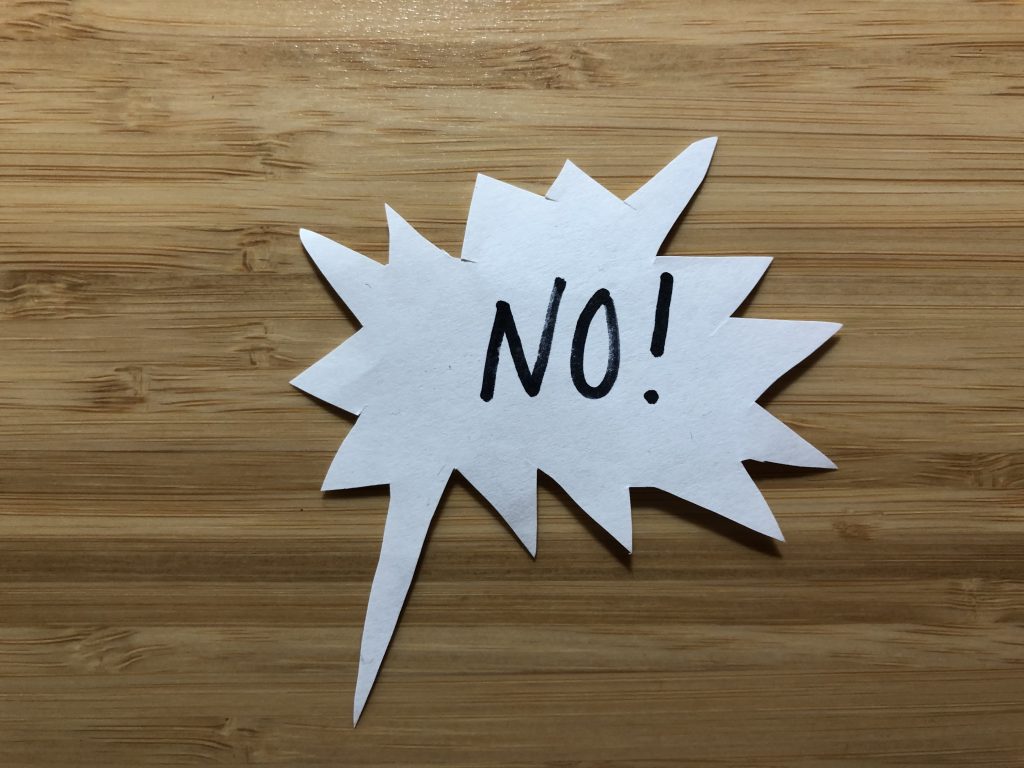
“I know the pandemic is raging, but you’re planning on coming home for the holidays, right?”
In a perfect world, there’s no question. But it’s 2020, and there’s so much uncertainty. I know you’re still planning on getting together with the entire family, and I’m scared of getting others sick. I just don’t think it’s a safe, responsible idea.
“Yes.”
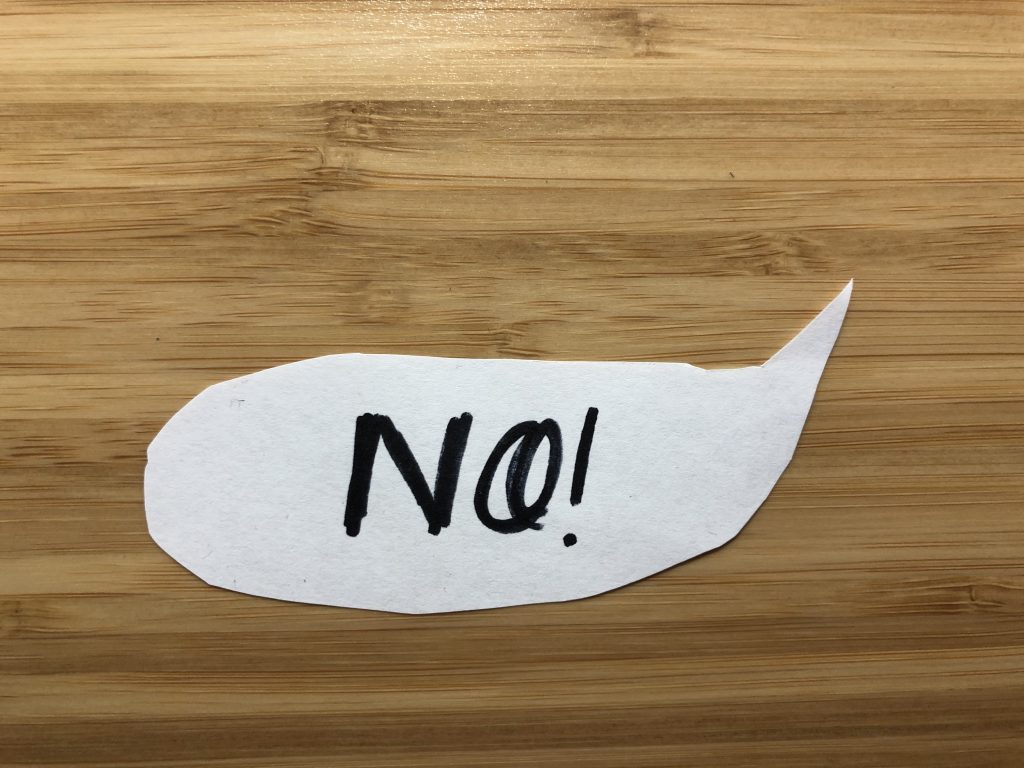
Looks familiar, doesn’t it? Saying “yes” when we really mean “no[2].”
We tell each other: “Just say no.” But what we really mean is: “Say ‘yes’ because it will minimize risk and keep you in good standing with your peers.” Because, after all, isn’t that what really matters?
And yet, if I’ve learned anything, it’s that “yes” gets us in trouble in certain settings. When contrived, saying “yes” has the potential to remove our autonomy and ultimately transform us into peer-pressure conforming robots. In tough situations we don’t often say “yes” because we want to, but rather because we think we should. This is the most dangerous type of “yes:” The “obligatory yes.”
When we give in to the “obligatory yes,” no one wins. Sure, it might seem like a quick victory, a short-term solution, or an easy way to avoid conflict, but living this way only heightens conflict, deepens long-term problems, and magnifies the effect of larger losses. Saying “yes” when we really mean “no” threatens relationships, increases feelings of bitter resentment, and ultimately starves us from that which is most necessary and life-giving on an individual level.
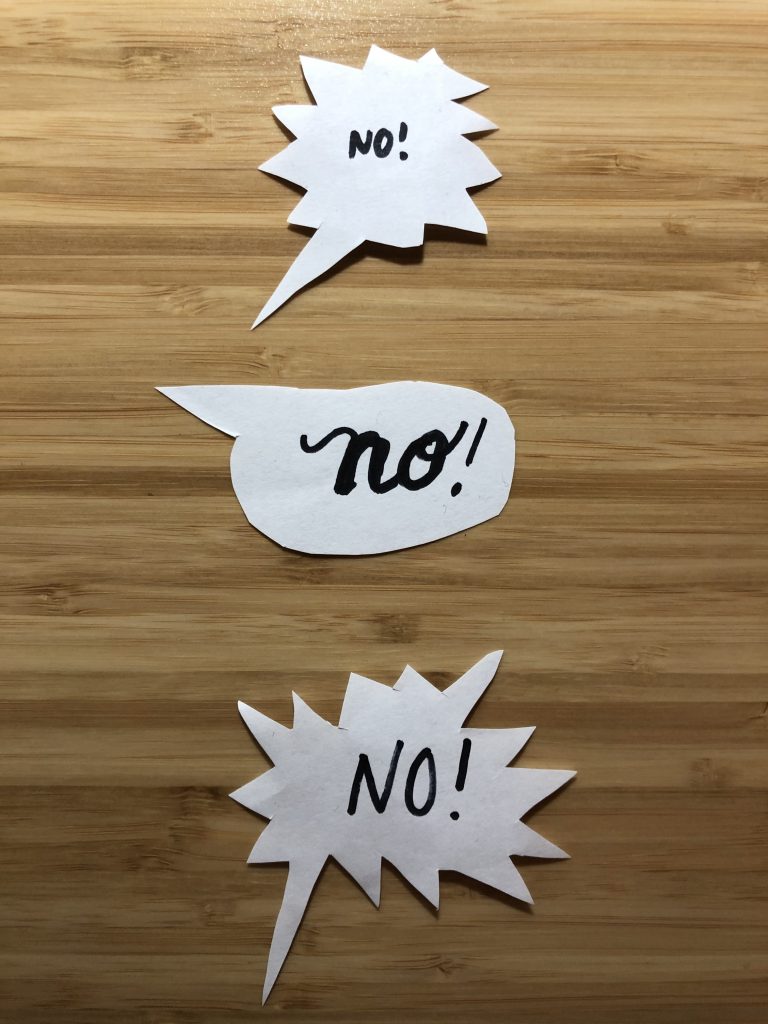
So, what happened? Where did we go wrong? At what point did we learn to mix messages and intentionally distort our outward communication, so that “yes” and “no” have devolved into conflated, empty words? When did we choose to constantly empty ourselves to others in a way that harmfully deprioritizes self and leaves us exhausted and wholly depleted? How might we begin to change this, recapture the autonomy that has been lost, and rebuild our sense of individual empowerment?
Well, for starters, we can return to our childhood roots. We can—and must— “Just say no.”
Saying “no” necessarily carves out time for us to pursue individual passions, curiosities, and goals without feeling the pressure to subscribe to other peoples’ agendas. Whether intentional or not, without doing this we enable other people to dictate our schedules and inevitably limit our accomplishments.
Saying “no” prioritizes our needs and allows us to double down and get clear on what matters most. It helps us draw those things closer and get laser-focused about removing that which stands in our way.
Saying “no” sets boundaries. It clearly communicates what’s important and empowers us to ask for what we need.
Saying “no” isn’t selfish; in fact, it’s incredibly selfless, as it allows us to create space for opportunity, curiosity, and possibility to thrive.
Saying “no” allows us to fill ourselves up so—when we are ready and able—we can ultimately show up better for others and give it all away.
I’ve recently discussed this concept with a couple friends who are similarly feeling bogged down by the competing demands and pressures of everyday life. Especially in 2020 when boundaries and personal wellness are critical, the need to say “no” has become more important than ever. I’ve learned a lot from these conversations, but two ideas particularly stand out:
NO-vember
What if we established this month as “NO-vember?” You’ve likely heard of “No Shave November” where participants forgo a month of facial grooming in order to evoke conversation and raise cancer awareness. Inspired by this mission, November has popularly transformed into a month where people say “no” to certain things in order to accomplish a larger goal. Whether it’s pausing alcohol consumption to improve overall health, cutting carbs to lose weight, or forgoing negative self-talk to build personal confidence, people all over the world have boldly embraced the eleventh month of the year as an opportunity to indulge in the therapeutic art of saying “no.” With this precedent, let’s take things up a notch and define these 30 days by intentionally reclaiming our power and saying “no” even when we feel guilted into saying “yes.” Let’s make November “NO-vember” and take a hard pass on anything that doesn’t serve us well. Period.
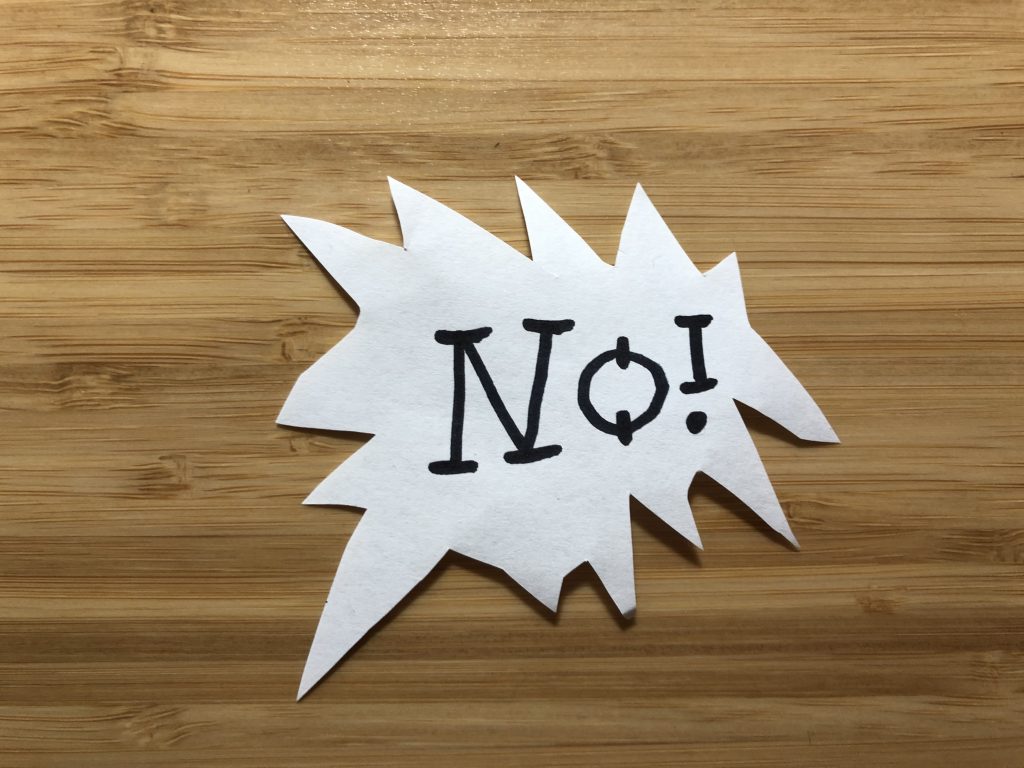
“No” + No Justifications
What if we said “no” and didn’t feel compelled to give a reason for doing so? So often we hem and haw over saying “no” because we’re worried about how it might land with others. Instead of being assertive and asking for what we need, we soften the blow by adding empty justifications or unnecessarily qualifying our response. I can’t because ______. Or, I’m so sorry, but let’s reschedule soon. When we do this, we actually dilute the effects of saying “no” and entangle ourselves in a sticky web of endless excuses. We become hopelessly lodged in the quagmire of social norms and societal expectations—real or imagined—and preposterously feel the need to defend our (very legitimate) decision to prioritize ourselves over others. So next time you say “no” and are tempted to provide an excuse, stop yourself. Instead of filling in that absurdly unnecessary blank, simply say: “I’m sorry. I can’t.” Then, leave it at that, set your guilt aside, and continue on your merry way to pursue whatever it is you need to do… for you.
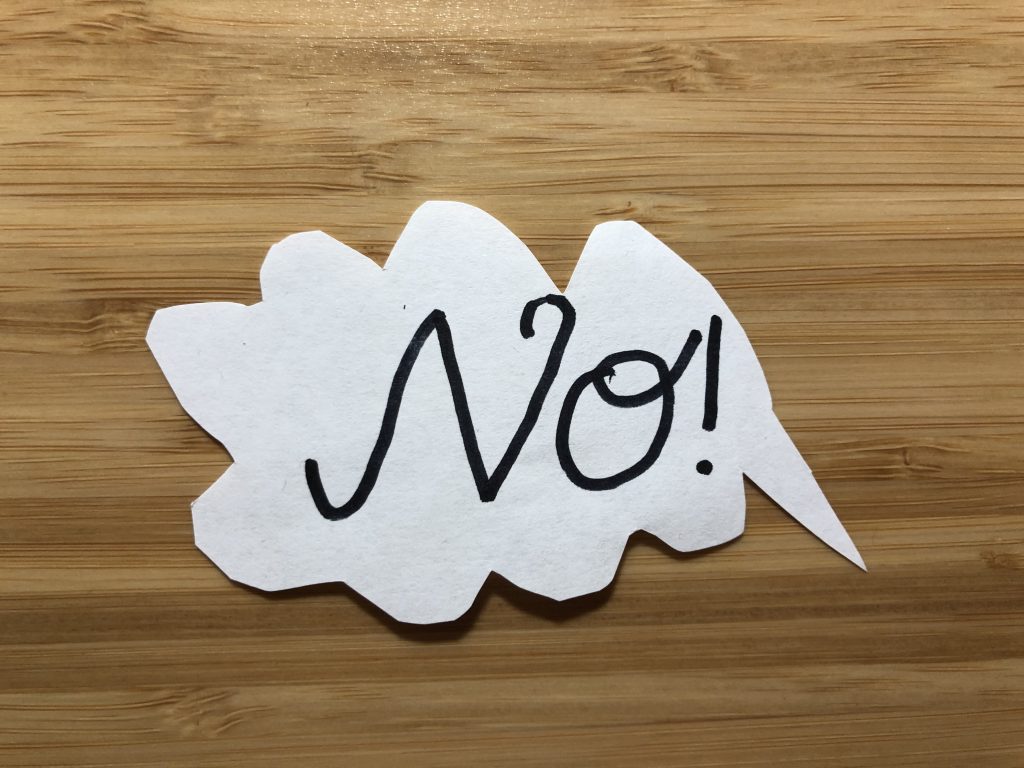
Keep in mind, we shouldn’t be a “no” for everything. Saying “yes” can be extremely powerful when it comes to risk-taking, courage building, and overall holistic growth. We simply need to say “yes” to that which is inherently good for us—like taking on certain stretch assignments or eating our “asparagus” versus continually opting for French fries—in order to stay balanced, healthy, and continuously learning.
American professor, lecturer, author, and podcast host Brené Brown, Ph.D. famously says, “Clear is kind. Unclear is unkind.” This sentiment is so simple yet so incredibly profound. When we send mixed messages about what we’re a “yes” for and what we’re a “no” for, we fall into the trap of ambiguity and inevitably fail to be kind, both to others and to ourselves. When we give the “obligatory yes” we think we are being thoughtful and supportive, when in actuality we are contributing to an unhealthy culture of resentment and missing out on opportunities that allow us to step into our full humanity.
So, how can we embody these words— “Clear is kind”—and envision a clearer path forward?
We can choose to say “no” when we actually mean it.
This is your month. This is your NO-vember. The clock is ticking: How will you say “no” to others so you can ultimately say “yes” to yourself?
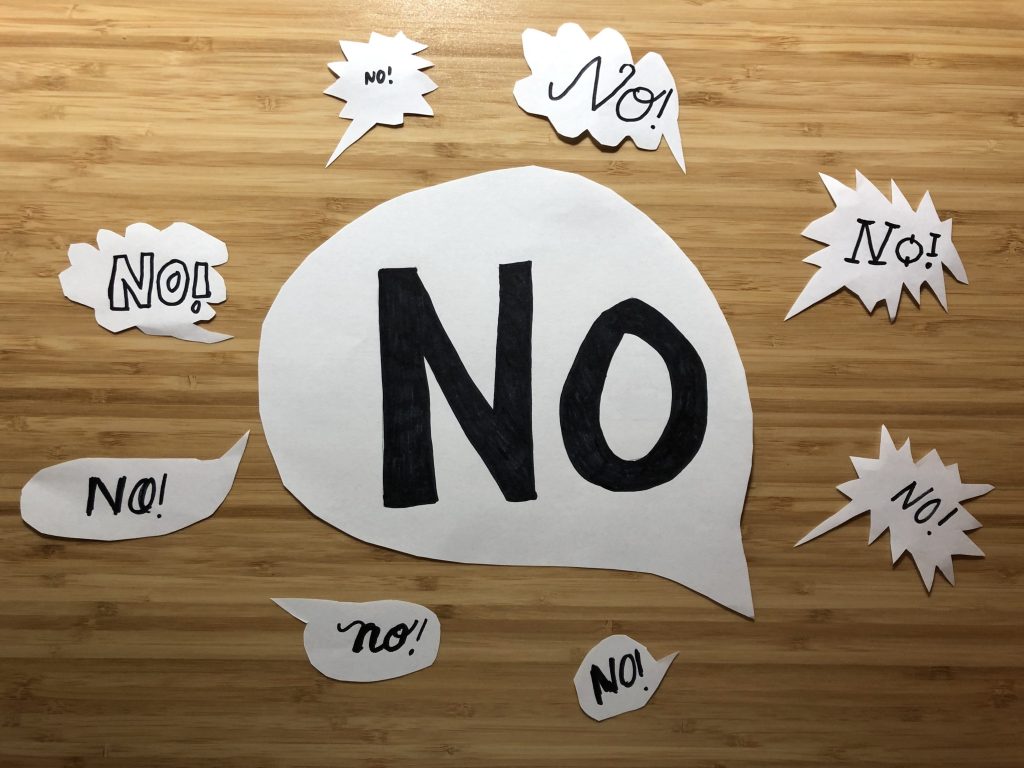
[1] D.A.R.E., anyone? I’m sorry, but did Daren the D.A.R.E. Lion freak anyone else out? Let’s be real he’s trying to be Simba just a little too hard, right? And where are his pants?! I’m sorry, but if you’re trying to convince me to not do drugs the least you can do is put some pants on… Seems like an instant blow to credibility. But what do I know? I’m just an impressionable fifth grader.
[2] Or “Oh, HELL no!” depending on the person, ask, and circumstance…



Comments are closed.